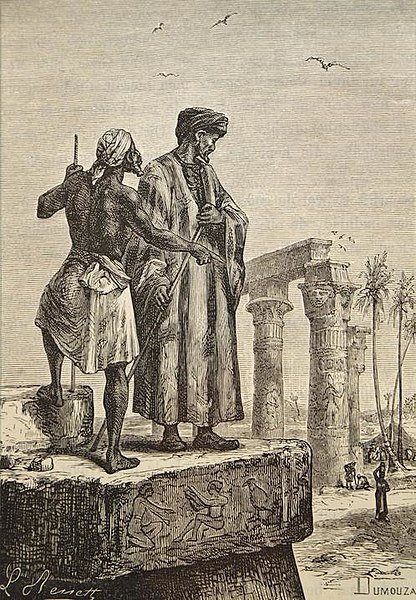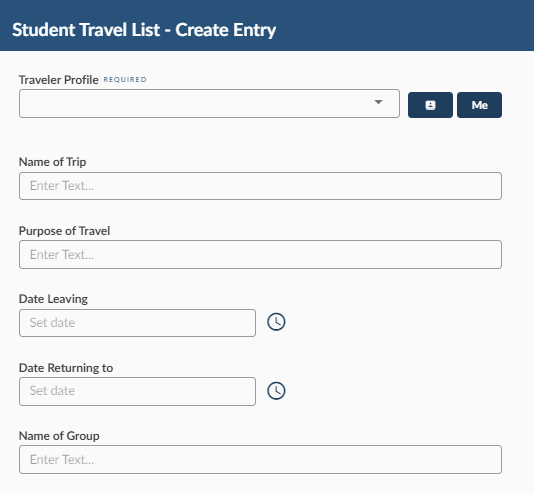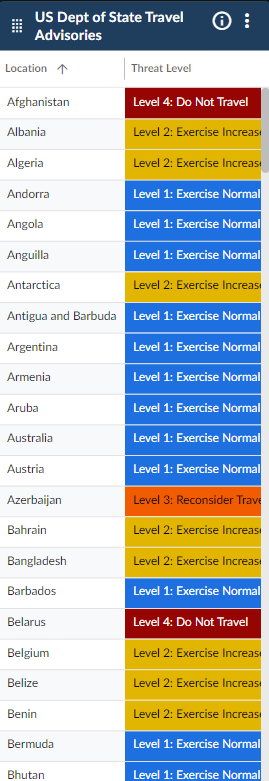Anyone who travels knows how enriching the experience is. Ibn Battuta, a 14th century Moroccan scholar, learned this quickly. When he set out on hajj in 1325, he probably didn’t plan on staying out for 24 straight years.
Students today often do what Ibn Battuta did: they strike out to parts unknown to learn more—but they’re usually home within 6 months, not a quarter-century. According to the 2017 Open Doors report by the International Institute of Education (IIE), just over 325,000 American students went overseas for their educations during the 2015-2016 school year. With so many students following Battuta’s footsteps today, how do universities keep tabs on all of them? How do they know they’re safe?
They use a tool called a travel registry. And, if you aren’t involved in higher education, you’ve probably never heard of a travel registry. So we’ll explain it here.
What is a travel registry?
A travel registry helps organizations contact members abroad in the event of an emergency. They’re simple, but very effective, tools. They ask for basic information from soon-to-be travelers, including:
- Where they’re going.
- When they’re going.
- Why they’re going.
- Personal and emergency contact information.
â€

Administrators can include other bits of important information, like embassy locations and emergency hotlines, within the registry. A travel registry is more than just a database—it’s a tool organizations use to keep their people abroad out of harm’s way.
What dangers are out there?

Our traveler, Ibn Battuta, faced dangers just as any other traveler would. Battuta was almost caught in the middle of a uprising in Aydhab in 1326, he was attacked and robbed just outside of Delhi by bandits in 1341, and he was caught in local political disputes a few times. Word-of-mouth and wit usually kept Battuta safe, but his system wasn’t flawless (he really didn’t have many other options, though).
The threats Battuta faced are still very real risks for travelers six and a half centuries later.
Thieves, instability, and natural disasters are just a portion of what travelers must prepare for today. A tool like a travel registry can keep them aware of these risks and give them resources they would need to get to safety.
Who would use a travel registry? Why?
Large organizations use these tools the most. The larger an organization is, the more members they’ll have on the move. This tool not only simplifies tracking all of this travel, it helps keep people safe, and that’s the ultimate goal.
By using a travel registry, an organization puts itself in a strong position. If an emergency happens in an area, travel registries help deliver potentially life-saving information. These are worst case scenarios, but it can’t hurt to be prepared for them. In the best case scenarios, it keeps an organization in the loop about where people are going and when they’re going.
This is why colleges and universities use travel registries. Tracking and messaging at this scale isn’t efficient any other way. Hundreds—sometimes thousands—of students and staff could be abroad at any given time. And with more and more features coming to travel registries every year, it becomes easier—and safer for those overseas—for universities to use a travel registry.
The Veoci travel registry
After a year after the Covid-19 pandemic, countries began to reopen borders and global travel resumed. For higher education, this meant students and faculty were back on the move for study abroad programs, sabbaticals, conferences, and other events. Colleges and universities needed to track all of this movement, especially given the heightened risk in traveling during this time.
Yale University, in 2017, started using the Veoci travel registry solution to track students and staff during the Ebola outbreak. The travel registry allowed a single integrated platform with mobile availability and notifications and alerts capabilities. You can learn more about the university’s solution here.
The Veoci Travel Registry caters to two administrative approaches.
Colleges and universities can gather travel data through self-reporting. Travelers complete a workflow that captures the details of their already-approved trip .
The second approach works the approval process into the workflow. In this build, prospective travelers submit their trip plans and the school approves or denies their request.
The travel registry solution found another purpose when the pandemic began. One higher education Veoci customer started using the solution to track Covid-19 cases throughout the organization. When travel rekindled in the fall of that year, the university used its travel registry to manage travel as well. The workflow lets users, students and faculty alike, self-report and notify university administrators of upcoming trips.

This put all relevant information in one place. An integrated solution created a smooth program, one that gave administrators a complete overview of travel activity within the organizations.
The solution integrated the US Department of State Travel Advisories as well. Not only did this provide situational awareness for the university, but the ability to geo-target notifications to students and faculty.

â€
The Home Stretch
Despite some hiccups, Ibn Battuta safely made it back to Marrakech, Morocco in 1350 (and again in 1354). If Battuta hadn’t practiced situational awareness the way he had, it’s hard to say if he would’ve made it home. Battuta set an important standard for travel, a tradition travel registries help adventurers carry out today.
Maybe some globetrotters will catch the bug Battuta did and just keep going. And if they do so, good—a travel registry will continue to help them stay safe.

